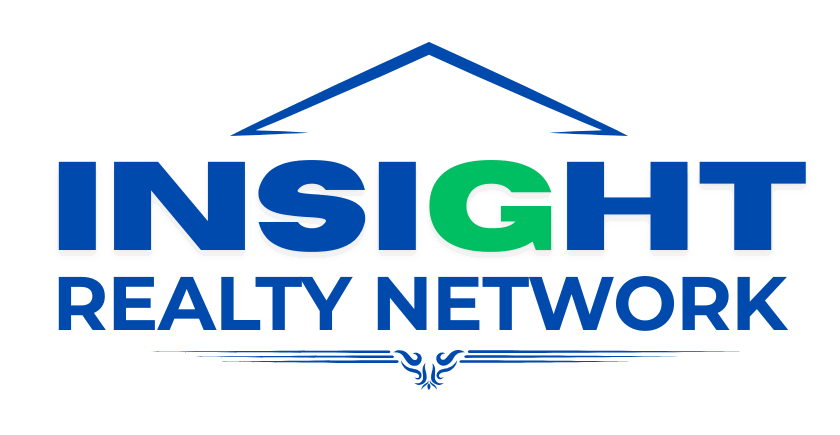When I sold my first home, I naively thought the $300,000 sale price meant $300,000 in my pocket. I was already planning what to do with the money—until I sat down at closing and saw how much came off the top. If you’re wondering “if I sell my house for $300k how much do I get,” the honest answer is: far less than $300,000.
Between paying off your remaining mortgage, covering agent commissions, closing costs, and other fees, the final number that lands in your bank account is usually tens of thousands of dollars lower. But understanding where every dollar goes can help you plan realistically—and avoid unpleasant surprises.
Why You Don’t Keep the Full $300,000
The sale price is the gross amount, not the net proceeds. Just like your paycheck isn’t the same as your take-home pay after taxes and deductions, your house sale will have money subtracted for various costs before you ever see it.
Here’s what usually reduces your proceeds:
- Mortgage balance: Whatever you still owe your lender must be paid off first.
- Real estate commissions: Typically 5–6% of the sale price, split between your agent and the buyer’s agent.
- Closing costs: Around 1–3%, including title insurance, escrow fees, and transfer taxes.
- Repairs and staging: Costs to prepare the home for sale and make it appealing to buyers.
- Capital gains tax: Only applies if the home was not your primary residence or if your profit exceeds IRS exemption limits.
Each of these pieces chips away at the total until the final net amount is what you actually receive.
Breaking Down the Numbers: A $300,000 Home Sale Example

Let’s run through a real-world example to see how much you might actually take home from a $300,000 sale.
| Deduction Category | Typical Cost Range | Estimated Amount (on $300,000) |
| Outstanding Mortgage | Varies by homeowner | $150,000 (example balance) |
| Real Estate Commissions | 5% – 6% | $15,000 – $18,000 |
| Closing Costs | 1% – 3% | $3,000 – $9,000 |
| Repairs & Staging | 0.5% – 2% | $1,500 – $6,000 |
| Capital Gains Tax (if any) | Depends on profit & status | Varies |
| Estimated Net Proceeds | $120,000 – $130,000 |
This table assumes a remaining mortgage balance of about $150,000. If you owe more or less, your net proceeds will change accordingly.
And if the home is your primary residence and you meet IRS ownership and use requirements, you may not owe any capital gains tax on the profit.
Step-by-Step: How to Calculate Your Net Proceeds

Let’s break the process down into clear steps so you can estimate your take-home amount with confidence.
1. Find Out How Much You Still Owe
The largest deduction from your sale is typically the outstanding mortgage. Contact your lender to get the exact payoff amount, which may include a few days of accrued interest.
Example:
If you owe $150,000, that amount will be subtracted from your $300,000 sale price right away.
2. Subtract Real Estate Agent Commissions
Agent commissions are usually 5–6% of the sale price. On a $300,000 home:
- At 5% = $15,000
- At 6% = $18,000
These fees are split between your agent and the buyer’s agent and paid from the proceeds at closing.
3. Account for Closing Costs
Closing costs are another 1–3% of the sale price and cover services like:
- Title insurance
- Escrow and settlement fees
- Transfer taxes
- Recording fees
- Attorney fees (if applicable)
For a $300,000 sale, expect $3,000 – $9,000 in closing costs.
4. Factor in Repairs and Staging Costs
Before selling, many homeowners invest in minor repairs or staging to improve the property’s appeal. These costs vary widely depending on the home’s condition but can range from $1,500 to $6,000.
If the home is in great shape, you might spend little to nothing here. If significant repairs were needed, budget more.
5. Consider Capital Gains Tax (If Applicable)
If this was your primary residence and you’ve lived there for at least two of the past five years, you can typically exclude up to $250,000 of profit (or $500,000 for married couples filing jointly) from capital gains tax.
If it was an investment property, or your gain exceeds those limits, you may owe capital gains tax on the profit portion.
Estimating Your Take-Home Amount: A Sample Scenario
Let’s put all the steps together with a realistic example:
- Sale price: $300,000
- Outstanding mortgage: $150,000
- Agent commissions (6%): $18,000
- Closing costs (2%): $6,000
- Repairs and staging: $3,000
Calculation:
$300,000 (sale price)
− $150,000 (mortgage)
− $18,000 (commissions)
− $6,000 (closing costs)
− $3,000 (repairs/staging)
= $123,000 net proceeds
In this example, you’d walk away with around $123,000 after selling your $300,000 home. Of course, the number could be higher or lower based on your exact situation.
What If You Don’t Have a Mortgage?

If your home is paid off, your net proceeds increase dramatically because you skip the largest deduction. Here’s what that might look like:
- Sale price: $300,000
- Agent commissions (6%): $18,000
- Closing costs (2%): $6,000
- Repairs/staging: $3,000
Net proceeds: $273,000
Still, even without a mortgage, selling costs can easily total $25,000+, so it’s important not to overlook them.
Hidden Costs That Can Surprise Sellers
Beyond the obvious deductions, a few other costs might reduce your final amount:
- Prepayment penalties: Rare but possible if you pay off your mortgage early.
- Property taxes: You may owe prorated property taxes at closing.
- HOA fees: Some associations require sellers to pay transfer fees or dues.
- Buyer credits: If you agreed to cover part of the buyer’s closing costs, that amount comes out of your proceeds too.
Review your closing documents carefully to make sure you understand every deduction before signing.
How to Maximize Your Net Proceeds

Here are some expert tips to keep more money in your pocket:
- Negotiate the commission: Some agents may agree to a slightly lower rate, especially in a hot market.
- Shop around for services: Title companies and attorneys can vary in cost—get quotes to save on closing fees.
- Focus on cost-effective upgrades: Minor improvements like fresh paint or landscaping can boost your sale price without major expense.
- Sell during peak season: Homes often sell for more in spring and early summer, improving your bottom line.
Small strategic moves can add thousands to your final check.
FAQs About Selling a $300,000 House
Q1: How much do I walk away with if I sell my house for $300,000?
On average, after paying off your mortgage, agent commissions, closing costs, and prep expenses, you might walk away with $120,000–$130,000. If you own the home outright, your net proceeds could exceed $270,000.
Q2: Can I avoid paying real estate commissions?
Yes, by selling “For Sale By Owner” (FSBO), but you’ll take on all the marketing, negotiation, and paperwork yourself. Buyers’ agents may still expect a commission, so plan accordingly.
Q3: Do I have to pay capital gains tax when I sell my home?
If it’s your primary residence and you’ve lived there for at least two of the last five years, you can exclude up to $250,000 (single) or $500,000 (married) of profit. Otherwise, you may owe capital gains tax on the gain.
Q4: What document shows my final net proceeds?
Your settlement statement (HUD-1 or Closing Disclosure) details every fee, deduction, and the final amount you’ll receive at closing. Always review this carefully before signing.
The Bottom Line: Plan Ahead for a Realistic Take-Home
If you’re asking, “if I sell my house for $300k how much do I get,” the answer is almost always less than you think.
Your mortgage balance, commissions, closing costs, and prep expenses all chip away at the total. In most cases, sellers net about 60–70% of the sale price after everything is deducted.
Planning ahead—knowing your payoff amount, estimating fees, and reviewing your settlement statement—can help you avoid surprises and make smarter financial decisions about what’s next.
And if your home sale is part of a bigger real estate journey, you might also want to explore how to buy a house without a realtor to save even more on future transactions.










